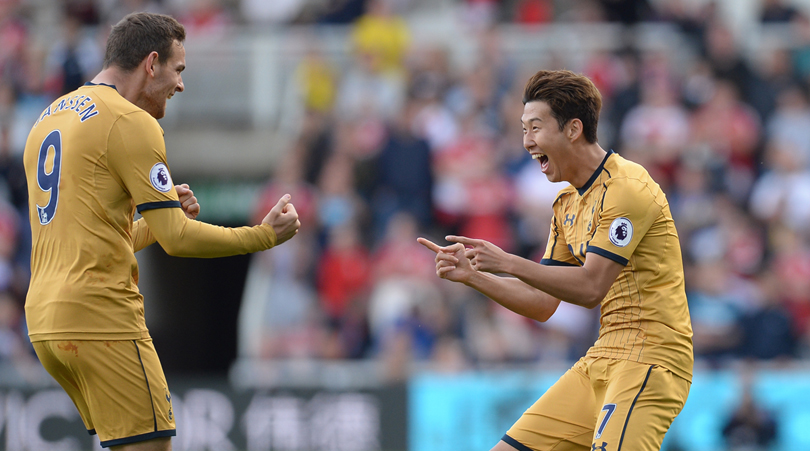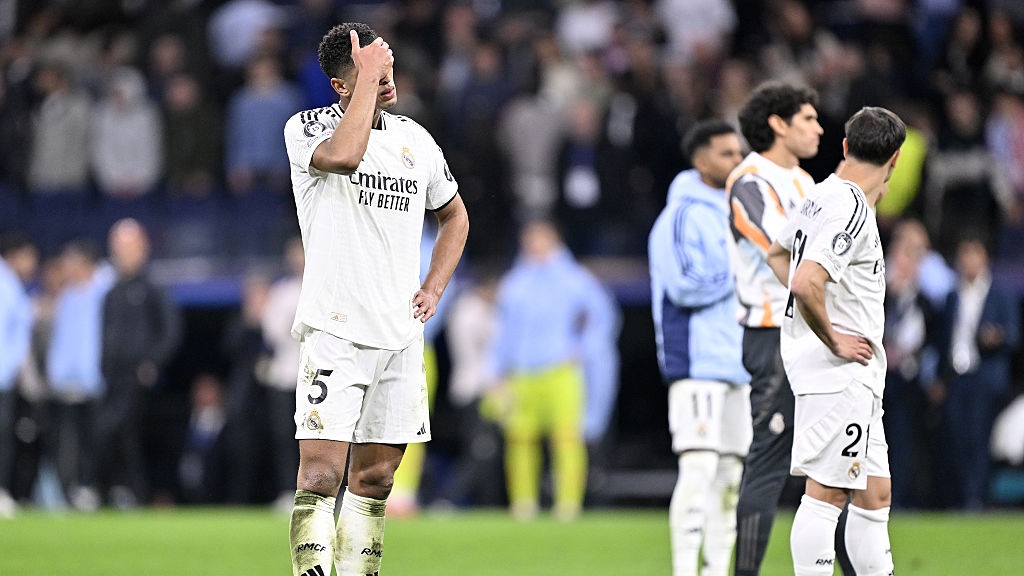What Mousa Dembele really means to Tottenham Hotspur
More than just a very good player for Mauricio Pochettino, writes Seb Stafford-Bloor, the Belgian hauls this Spurs side to a new level with a special set of traits
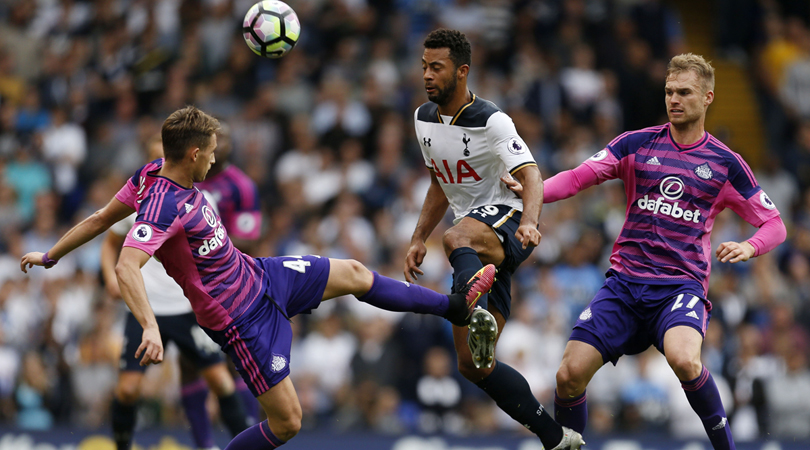
One of last season's more startling moments was Mousa Dembele's attempt to rake Diego Costa's eyes. It was the centre point of that fractious encounter between Tottenham and Chelsea at Stamford Bridge and the Belgian midfielder only recently returned from his subsequent ban.
It was strange because it was out of character. That match may have descended quickly and spectacularly into angry chaos, but Dembele was still an unlikely protagonist.
Though his career at White Hart Lane took some time to reach its present heights, his temperament has been a constant. Of all Mauricio Pochettino's players, he is the most emotionally stable and least susceptible to professional football's surrounding forces.
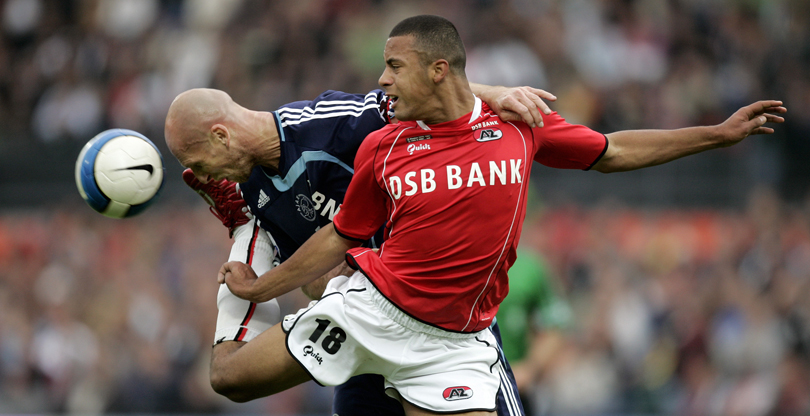
Date of birth: July 16, 1987
Place of birth: Antwerp, Belgium
Former club(s): Beerschot AC, Willem II, AZ Alkmaar, Fulham
Tottenham: Signed Aug 2012 (160 apps, 9 goals)
Regardless of the score, the atmosphere or the circumstances, Dembele plays in exactly the same way. He takes the same amount of touches on the ball, always appears physically invulnerable when in possession, and rarely does his expression change. There's no shouting or melodrama and, quite likely, that's why he's been able to become the steady bassline within Tottenham's merry band.
Different kind of mind
That fits with his personality. In interviews, Dembele comes across as someone who walks to a slightly different beat and seems as far from the British footballing archetype as it's possible to be. His mother was a professional artist, he has spoken in the past of a love for musicals, the acoustic guitar, and travel; this is not a typical Nando’s, Call of Duty-type of footballer.
Nor, interestingly, did he have a familiar upbringing. While most contemporary professionals talk of bedroom walls decorated by posters of players and of being inspired by seminal games, Dembele's childhood in Antwerp was comparatively irregular: he had no favourite team and showed little interest in televised football.
Get FourFourTwo Newsletter
The best features, fun and footballing quizzes, straight to your inbox every week.
He loved the ball, though. In a 2013 Telegraph interview, he remembered refining his close control in the family living room and his mother's tolerance of the ensuing destruction. “I broke everything inside the house – boom! – but my mother was always very nice. She’d say: ‘OK, OK have another ball’," he recalled fondly.
So much dribbling
These are Dembele's footballing roots and they offer an explanation for why he plays the game as he does. Although these little anecdotes ignore the regularising impact of his youth coaching and his formative years in the Jupiler League and Eredivisie, they are still easy to tally with who he is today. He is someone who understands the game around him, of course, but also a player who is unusually composed with the ball at his feet and who shows little respect for the pressures which swirl around top-level football.
The average player harbours a fear of mistakes and allows that to pollute his game, whereas Dembele operates with an immunity which only comes from total self-confidence. It may be a stretch to attribute that to the hours spent in his family's living room, but neither that nor his habitual ambivalence to football's gravitas seems entirely irrelevant. They are the cornerstones of who he is as a player: talented yet seemingly indifferent, expressive and completely fearless.
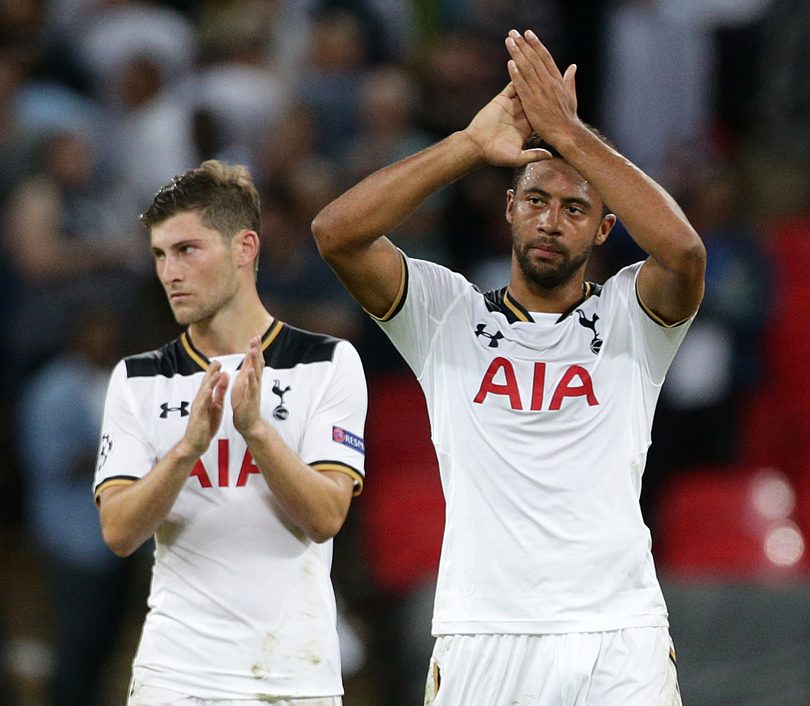
Immediate impact
Spurs' opening Champions League game of the season ended in defeat to Monaco but, among the concerns about the size of the Wembley pitch and the lack of attacking penetration, Dembele's return was an unanimous positive. Substituted into a losing cause at half-time, his arrival ultimately didn’t help bring an equaliser, but the shape of the game and atmosphere in which it was played changed entirely with his introduction.
While Tottenham had spent the first 45 minutes struggling for midfield traction and being unable to apply concentrated attacking pressure, Dembele solidified the base of midfield and provided that platform. A lack of accuracy and some off-colour performances from forward players prevented that from being reflected in the scoreline, but his influence still altered the mood.
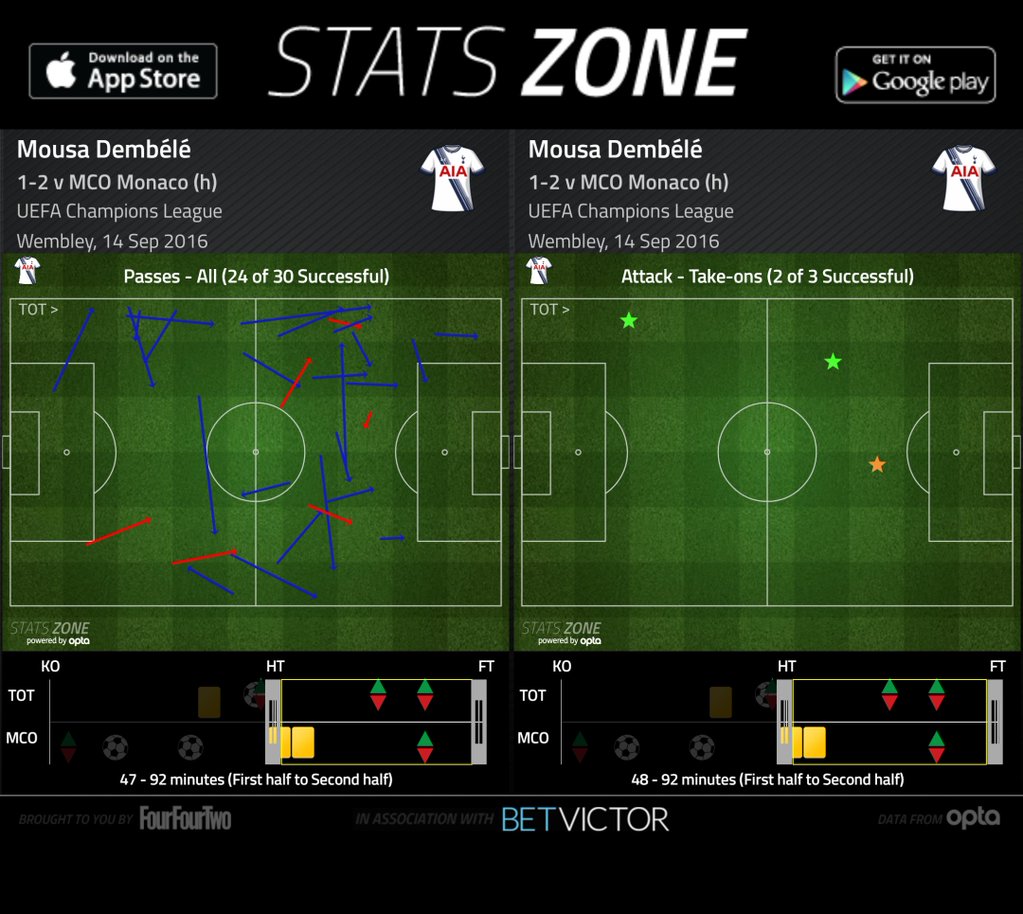
STATS ZONE Free on iOS • Free on Android
Dembele's ability to hold, carry and distribute possession drew opponents towards him and eliminated them from phases of play. As is now his norm, he added additional technical and physical layers to Pochettino's side which made them both more solid and more fluid.
Uplifting
But he is more than just the sum of his attributes. He is gifted, of course, but he also occupies a role of great psychological importance at Tottenham. To the supporters he is an antonym to the frailties of the past and, to his team-mates, the provider of a semi-mystical reassurance.
Elite players will always possess that quality to a degree, but it's more concentrated in Dembele. He is so smooth and composed in possession that his touches have value beyond their individual worth. Similarly, his physical dominance is often so overwhelming as to naturally embolden others. He swats opponents away dismissively and plays with an intoxicatingly acute superiority complex.
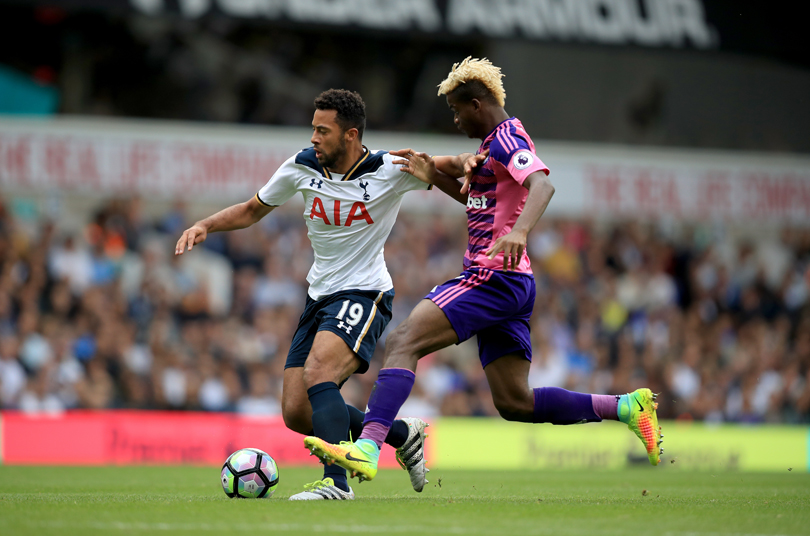
That may be an intangible and difficult to accurately quantify, but he has an effect on surrounding players that very few others do. When he has the ball, Tottenham's nervousness melts away and the anxiety which runs through the club's DNA disappears; players are bolder, supporters are more relaxed, and opportunity ripples up the pitch.
His abilities are ultimately behind that, but Dembele has developed an aura among his Spurs peers which is worth as much or possibly more than those literal qualities. Beyond being one of the best five midfielders in the country, he plays with an infectious conviction which, in a Tottenham side climbing new heights, provides a priceless equilibrium.
Safe and sound
2015/16 was a wonderful year at White Hart Lane and it left the supporters with many precious memories. Among them, towards the end of the season, was a Dembele sequence during the 3-0 win over Manchester United.
Louis van Gaal had instructed his players to hassle Dembele at every opportunity and, yet, he repeatedly pirouetted calmly through their pressing. During one particular phase, which lives on through dozens of GIFs and Vines, he slapped away a small army of United players, slipped through the lines and drove the ball upfield.
There was tactical merit in that and it created space, but consider it also from the perspective of Dele Alli, Christian Eriksen or Eric Dier. When a player is able to be look so forceful, it transmits through the team and creates a lasting memory.
Since his rebirth under Pochettino, Dembele has produced dozens of similar moments and, over time, has built this perception of invulnerability. With him on the pitch, those around him feel able to take an extra degree of risk. They feel safe and hence comfortable in abandoning conservative positions and pushing into more advanced space.
Without Dembele, Tottenham look overly structured and vulnerable. With him, they play with more pace, more ambition, and are typically far more dangerous. If the Premier League is full of intimidating alleyways and Spurs are a young, hesitant team, then Dembele is the figuratively burly presence who allows them to step confidently into the darkness of the Emirates, the Etihad and Stamford Bridge. When he's alongside them, they swagger around the bad parts of town.
Essentially, this is a playground football quality. In the adult world, he is still the equivalent to the biggest child at school, but also the most skilful and the one who can be left at the back while everyone else goal-hangs. The professional game is, of course, more complex, but it promotes a similar mindset and it's in strong evidence at Tottenham.
The voguing trend in football is to evaluate with statistics or to intellectualise each facet of play until it makes definitive sense. But if Dembele is proof of anything, it's that emotional forces still pulse through the game and that teams, as well as being fragile, are still influenced by strong characters who have an unusual effect on those around them.
Seb Stafford-Bloor is a football writer at Tifo Football and member of the Football Writers' Association. He was formerly a regularly columnist for the FourFourTwo website, covering all aspects of the game, including tactical analysis, reaction pieces, longer-term trends and critiquing the increasingly shady business of football's financial side and authorities' decision-making.
